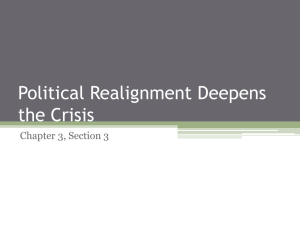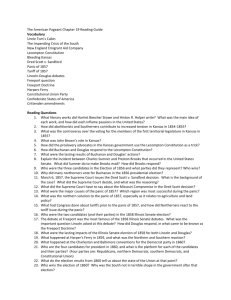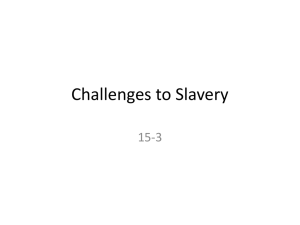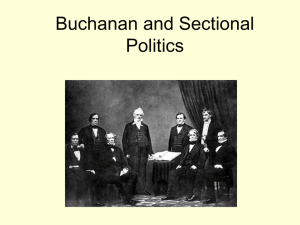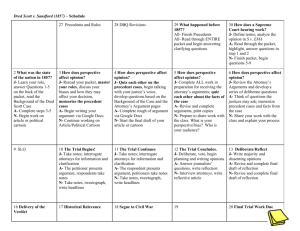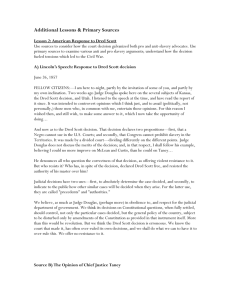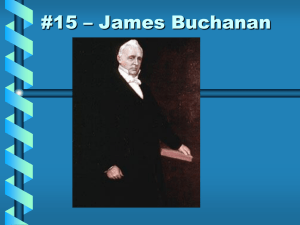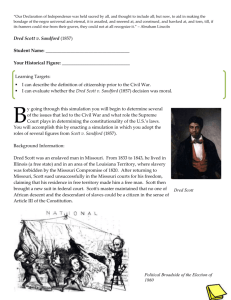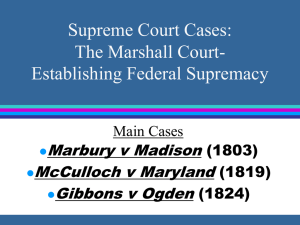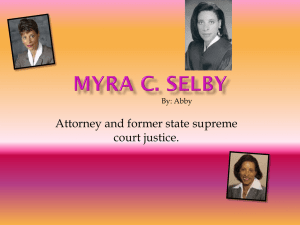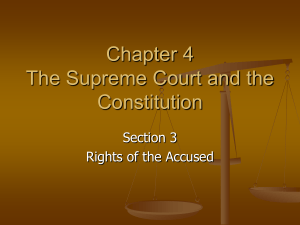Chapter 19: The Electoral Fruits of 1856, The Dred Scott Bombshell
advertisement
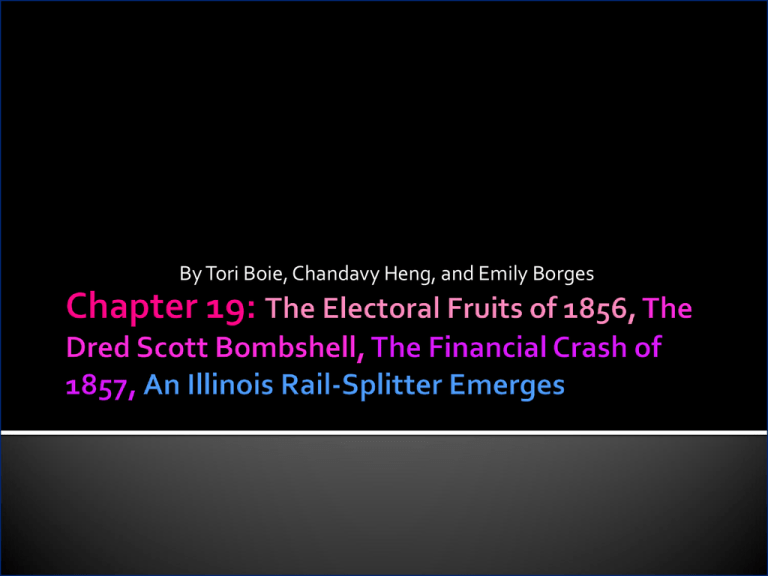
By Tori Boie, Chandavy Heng, and Emily Borges Panic of 1857: Financial crash brought on by gold- fueled inflation, over speculation, and excess grain production. It called for higher tariffs and free homesteads (western land) Tariff of 1857: Lowered duties on imports in response to a high Treasury surplus and pressure from the southern farmers Dred Scott v. Stanford(1857): Supreme court decision that extended federal protection to slavery by ruling that congress did not have the power to prohibit slavery in any territory; also declared that slaves, as property, were not citizens of the United States. James Buchanan: popular votes- 1,832,955 America’s 15th President from March 4, 1857- March 4, 1861 Born: April 23, 1791 Died: June 1, 1868 Occupation: Lawyer, Diplomat Political Party: Democratic John C. Fremont: popular votes- 1,339,932 California’s 3rd Governor: he was looking for $ Born: January 21, 1813 Died: July 13, 1898 Profession: Solider, Adventurer Political Party: Republican Millard Fillmore: popular votes- 871,731 America’s 13th President from July 9, 1850-March 4, 1853 Born: January 7, 1800 Died: March 8, 1874 Profession: Lawyer Political Party: Anti-Masonic, Whig James Buchanan defeated Fremont in the election of 1856 John Fremont the election because of his lack of honesty, capacity, and sound judgment Beneficial that Buchanan won, Fremont was not as strong as Abe Lincoln, and in 1856, many people were still apathetic about slavery, and the South could have seceded more easily. Bright Blue: Whig (Fillmore) Orange: Republican (Buchanan) Blue: Democratic (Fremont) Born in 1795 and died in 1858 He started out a slave with Peter Blow who died in 1832. Ownership transferred to Dr. John Emerson (army surgeon) After spending time in Illinois (free state) he decided to sue for freedom on grounds that he was free After the United States Supreme court ruled against Scott, he was bought by Blow’s children, then freed. Dred Scott v. Stanford(1857) and outcomes Dred Scott sued for freedom Made it to United States Supreme Court Court ruled against him on grounds that he was black therefore not an American citizen and could not sue Legislature/Congress could not outlaw slavery- violated 5th amendment- concluded Missouri Compromise was unconstitutional Southerners were obviously happy with the decision that the supreme court had made although the northerners were oblivious of the choice that the supreme court had encountered Southerners were obviously happy with the decision that the supreme court had made Northerners were oblivious of the choice that the supreme court had encountered Northerners were mad and tension built Financial worries and bitterness over the Dred Scott cases, causes an overall bitter feel in America and negative outlook. “The panic of 1857 was more a psychological hardship than an economic one” Causes for the Clash: 1. California gold Rush 2. Demands from Crimean War in Russia 3. Frenzied speculation in land Rail Roads further ripped economic fabric North and West was hit the hardest South “rode out the storm with flying colors” lead to the ideology that south’s economic kingdom was stronger than the north. 1860- Homestead act was passed in congress but vetoed by president who favored the south The panic also lead to higher Tariff rates. Congress enacted Tariff of 1857 responded to pressures from the south. Reduced duties to about 20% on dutiable goods *lowest point since war 1812* North blamed there poor fortune on the low tariffs Panic of 1857 gave Republicans two surefire issues for election of 1860 1. 2. Protection for the unprotected Farms for the farmless Republican party decided to run Abraham Lincoln against Stephan A. Douglas in election of 1858 Lincoln was raised poor and only had a year of schooling- self educated He married into a higher class His wife, “she wolf” taught him patience and forbearance He became known as “honest Abe” a better known trial lawyer in Illinois. He also served-uneventfully- one term in congress from 18471849 The passage of the Kansas- Nebraska Act ignited an unexpected spark within him He jumped on the republican bandwagon and became one of the “foremost politicians and orators of the northwest” He was on the right road to become a popular and revered president Although he lost this election he wouldn’t loose the next
